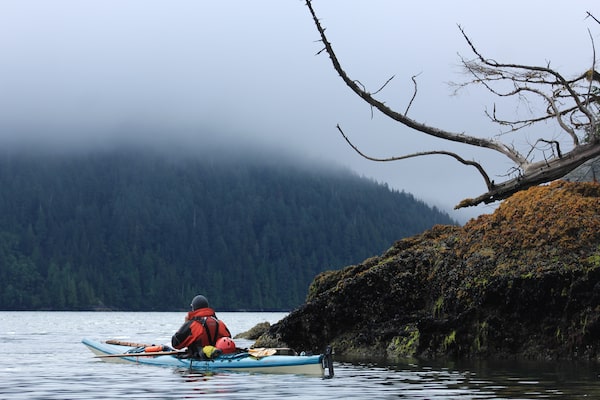
CHRIS WALKER/Outward Bound Canada
Summer camp has always meant facing a certain amount of challenges – mosquitos, making new friends, learning to play new sports and games.
In other words, it’s an opportunity for kids to become more resilient.
Over the past several years, resiliency – being able to withstand difficulties and rise to the occasion when necessary – has become one of the qualities parents want most for their children, as most of us have come to believe that the coddled children of helicopter parents won’t make it far in this world.
Books on resiliency have been churned out by the dozens. Research institutes have been founded to study it. Child psychologists actively promote its benefits.
No wonder camps across the country have begun to tout their resiliency-building benefits.
It’s a great sales pitch. But how do camps do it? Teaching kids archery or to ride a bike, or most any other classic camp activity for that matter, seems fairly straightforward, whereas teaching resilience can be more difficult to understand.
Directors and counsellors at four camps in Canada that promote their resiliency-building benefits share how they go about doing it, helping to make not only happy campers, but ones who come home ready to rise to the occasion.
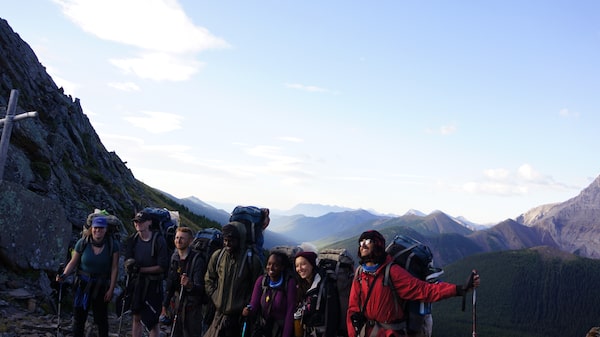
MIKE BRADFORD/Outward Bound Canada
Camp Fyrefly
Operating in Alberta, Saskatchewan and Ontario, Camp Fyrefly is “a resiliency building camp for lesbian, gay, bisexual, transgender, queer and two-spirited youth and their allies,” says Spencer Harrison, director of the camp at Trent University, in Peterborough, Ont.
Over the course of five days, campers between the ages of 14 to 24 participate in five workshops of their choosing, all based in the arts or indigenous practices, whether it’s poetry writing, song writing, dance or sewing workshops.
“They are workshops that are really based in self-discovery,” Harrison says.
Developing a stronger, more confident sense of self is one key to building resiliency in campers, he says.
“They get in to discussions of who they are and how they’re navigating the world around them,” Harrison says.
The sense of community and self-discovery are certainly key to building campers’ resiliency. So too is a drawing and storytelling workshop where they are asked to tell an uncomfortable story from their lives and are asked to think about how they would like to rewrite that story. It’s a way to help them “build a sense of themselves being strong, wonderful, incredible, cool, funny, funky, weird kids,” Harrison says.
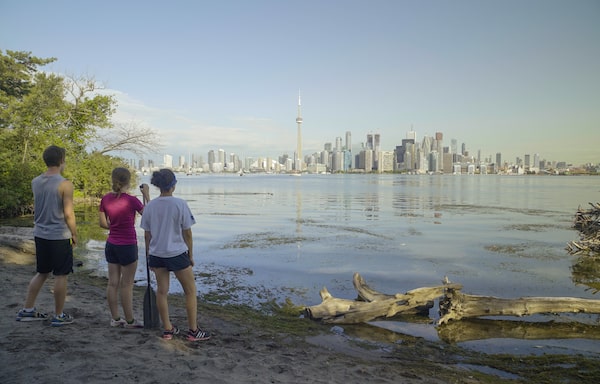
BO ROBERTS-LEUNG/Outward Bound Canada
Outward Bound
Resilience is the first goal in Outward Bound’s mission statement: “Our mission is to cultivate resilience, leadership, connections and compassion through inspiring and challenging journeys of self-discovery in the natural world.”
The national organization runs everything from single day camps in or near urban centres to 21-day canoe trips in the wilderness, with participants portaging and camping the entire way.
Every program is based on two fundamental aspects of resiliency: getting out of your comfort zone to take on new challenges, and developing a sense of mastery.
In the Toronto day program, for example, there is a high rope tower for campers to scale.
“That’s a great tool to take someone out of their comfort zone,” says Marika Chandler, Outward Bound’s Ontario program director.
To develop a sense of mastery and confidence in a newly acquired skill set, campers are taught foundational outdoor skills, such as fire-building and navigation.
On longer trips, they’ll often be asked to step up and lead the way with map and compass in hand, or take on other leadership roles to build their resiliency.
“As the course progresses, we expect our instructors that they start to take steps back,” Chandler says.
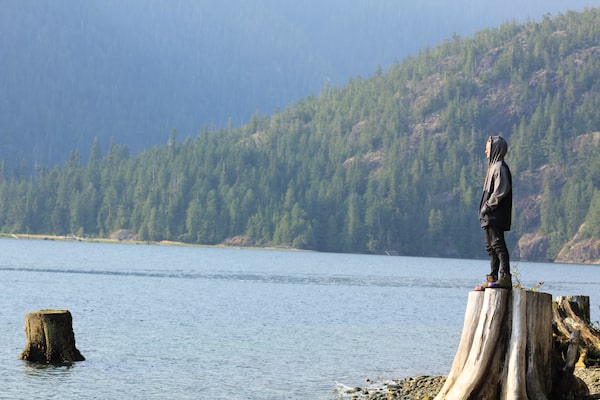
CHRIS WALKER/Outward Bound Canada
Camp Kahuna
Every camp is an experiment in character building to one degree or another. But few are as explicitly so as Camp Kahuna, created by children’s book author and anti-bullying advocate Scott Graham.
Based in Burlington, Ont., the camp, for children who are between six to 12 years old, is focused on anti-bullying and leadership, says Connor Parkin, one of the program directors.
Many of the campers have experienced bullying, and the opportunity to spend time in the safe space of the camp can be tremendous for their resiliency, he says.
“You’re building your own self-confidence outside of a school or being at home with your parents,” Parkin says.
A typical day at the camp could include a camp-wide scavenger hunt, fishing, rafting down the creek nearby or playing co-operative games, Parkin says.
One way the camp helps build resiliency, Parkin says, is by allowing children to pursue the activities that interest them the most.
“It’s letting them feel in control of themselves,” he says.
And once a child finds an activity they enjoy and excel at, counsellors will heap praise on them.
“Positive reinforcement is a huge thing,” Parkin says.
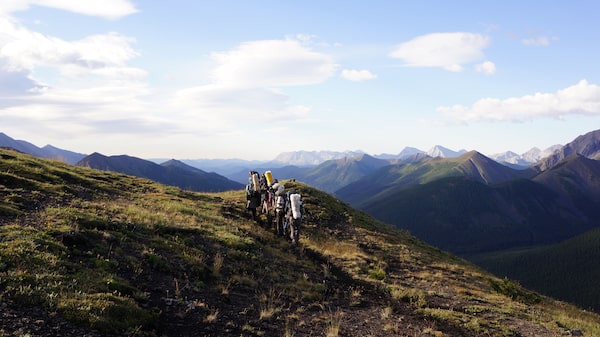
MIKE BRADFORD/Outward Bound Canada
Dolphin Kids
A day camp at three different school locations in Vancouver for children who are between three-and-a-half to 13 years old, Dolphin Kids is based on the work of Harvard-trained child and adult psychiatrist Dr. Shimi Kang, author of The Dolphin Way: A Parent’s Guide to Raising Healthy, Happy and Motivated Kids, Without Turning Into a Tiger.
“It’s really a social, emotional, cognitive learning program where we teach kids positive coping tools that they can use to be innovative, to show really good leadership skills and to build their resiliency skills,” says Elyse Cochrane, the program director at Dolphin Kids.
From teaching “brain games” such as word puzzles and chess, to gratitude journaling and deep-breathing strategies, the camp is heavily focused on neuroscience-based techniques.
“We teach them that humans are hardwired to be resilient. Our brain is hardwired to respond to challenges,” Cochrane says.
That includes teaching them that they feel good when they are able to solve a problem on their own, thanks to dopamine, a neurochemical of reward.
“We really teach them that facing challenges, learning from trial and error or failure and mistakes, are actually something that should be embraced, not feared,” Cochrane says.
Deep-breathing exercises are designed to help kids face moments of challenge or struggle, and public speaking events where kids delivery their own version of TED talks help them overcome a common phobia.
“Resilience is really that ‘I can do it’ mindset,” Cochrane says.
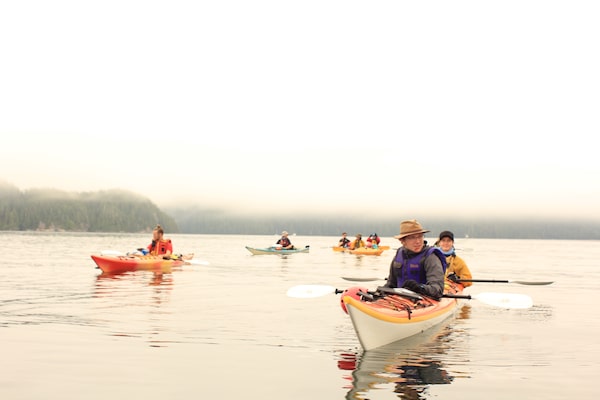
CHRIS WALKER/Outward Bound Canada
 Dave McGinn
Dave McGinn